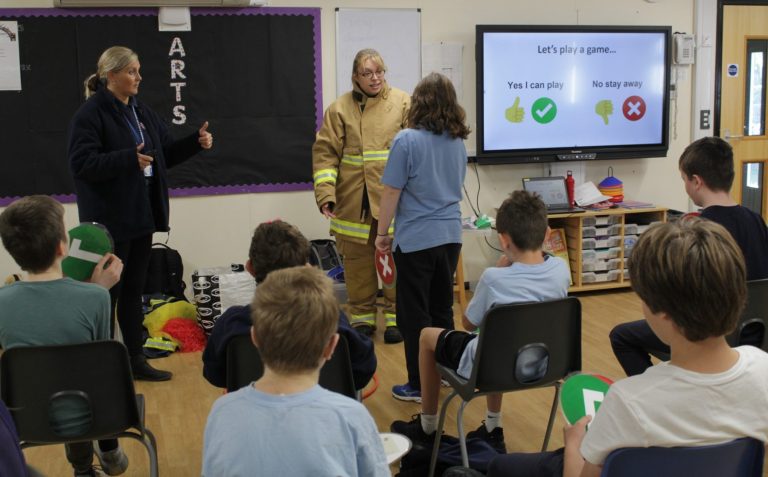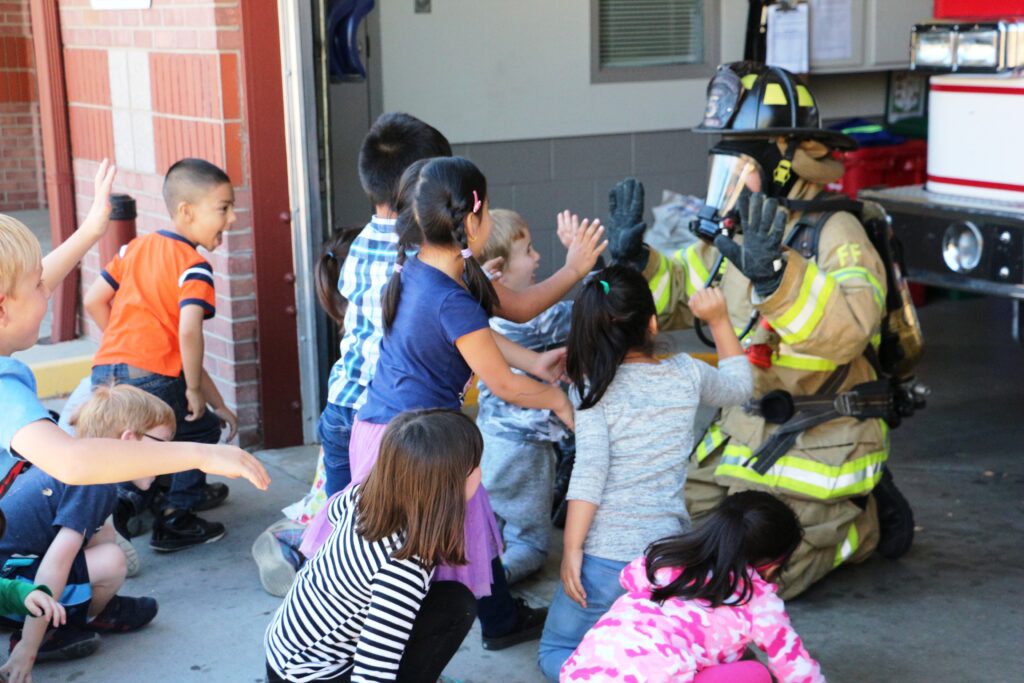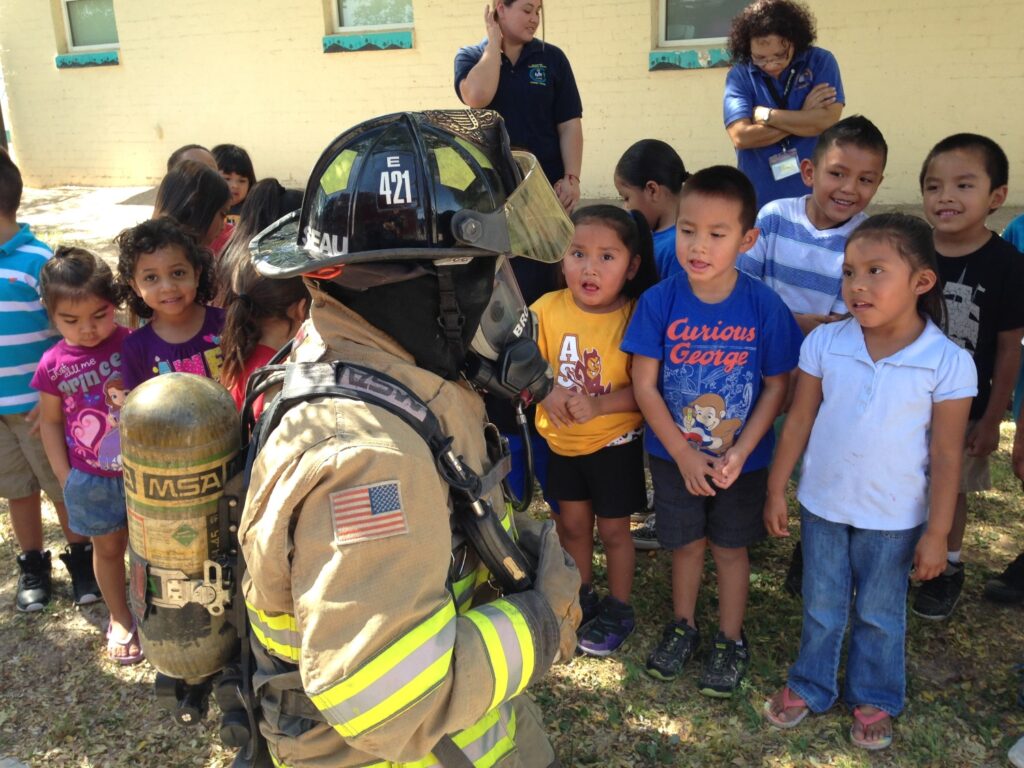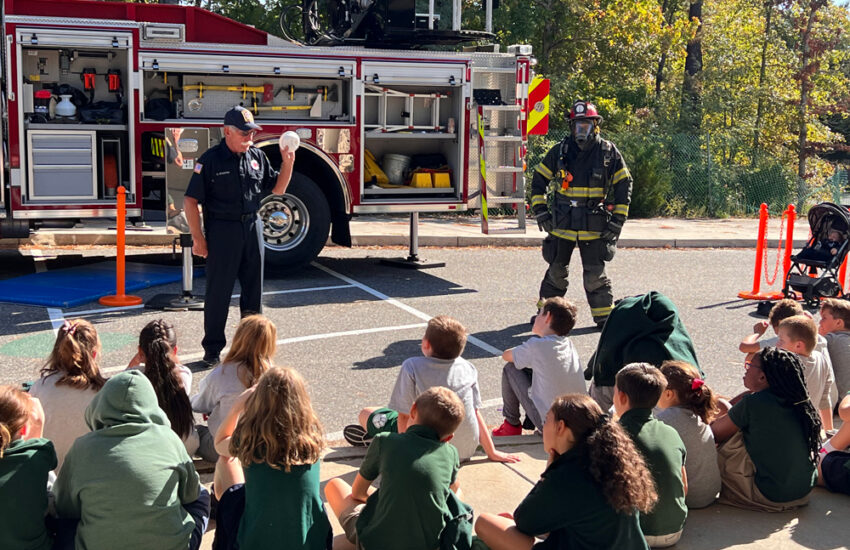The Heart of Fire Prevention Week
Every fall, Fire Prevention Week rolls around, and for many of us in the fire service, it’s more than just a calendar event—it’s a tradition, a mission, and a community-wide call to action. This week reminds us why we train, why we respond, and why we work so hard to prevent tragedy before it strikes. It’s about more than smoke alarms and fire drills. It’s about bringing neighbors together, educating families, and giving kids the tools to stay safe. And for us in the Arlington Fire Department, it’s a chance to step out of the firehouse and into the community—not with sirens blazing, but with stories, demonstrations, and real conversations about fire safety.
At Local 1329, we’ve seen firsthand how awareness saves lives. I remember a kid named Marcus who once visited our open house with his school. Just two weeks later, when a kitchen fire broke out at his house, he crawled low under the smoke, got his siblings out, and remembered to call 911 from a neighbor’s phone. His family made it out safe—and he credited what he learned during Fire Prevention Week. That’s the power of these efforts. That’s why we keep doing it year after year.
Fire safety isn’t seasonal—it’s a mindset we help build, one neighbor at a time.
Engaging the Community Beyond the Basics
Fire Prevention Week gives us the opportunity to bring people together in ways that stick. We don’t just pass out brochures—we build experiences. Whether it’s hosting a fire extinguisher training at the community center or letting kids try on real turnout gear, the goal is always the same: create lasting impressions that turn into safe habits.

Some of our favorite community activities include:
- Fire Truck Exploration Zones: Kids and adults alike get to climb aboard, learn about the tools we use, and hear what a firefighter actually does on the job.
- Live Demonstrations: We set up mock kitchen fires and show step-by-step how to respond. These demos leave a strong impact—seeing the speed of a grease fire changes how people cook forever.
- Smoke Maze Trailers: Participants crawl through simulated smoke conditions to practice staying low and finding exits, gaining muscle memory that could save lives.
- Family Safety Challenge Days: We turn safety into a community competition—families go through timed drills and safety quizzes together, which really gets everyone involved.
In these moments, we’re not just first responders—we’re mentors, coaches, and sometimes comedians (especially when we let the kids spray the hose at firefighter-shaped targets). We show that safety isn’t about fear—it’s about empowerment.
Schools as a Fire Safety Powerhouse
If there’s one place where fire safety messages really take root, it’s the classroom. Fire Prevention Week often starts with schools, and our partnerships with teachers and school districts have grown into something special. We coordinate lesson plans, run fire drills, and bring fire safety into science, art, and even storytelling. When we visit second-grade classrooms, we’re not just guests—we’re part of the lesson. We read fire safety books, hand out activity packets, and answer the wildest, most unexpected questions from curious young minds.

We also run an annual poster contest that has become a schoolwide event in Arlington. Students design posters about smoke alarm safety, home escape plans, or firefighter gear—and let me tell you, some of these kids have serious artistic talent. Their work gets displayed at city hall and even in our stations, and we’ve found that this kind of creativity makes the message stick in ways lectures can’t.
Another big hit is our puppet show for younger students, where fire safety lessons are taught through characters like “Flash the Fire Dog” and “Captain Safe.” It might sound a little cheesy, but you should see a kindergartener’s face light up when Flash teaches them to “stop, drop, and roll.” That’s lifelong learning in action.
When a child teaches their parent how to check a smoke alarm, that’s a win for all of us.
Firefighters as Teachers and Neighbors
During Fire Prevention Week, our role shifts a bit. We’re not just on call—we’re on the frontlines of education. It’s a different kind of service, but it’s just as important. We walk through senior living facilities, checking smoke alarms and talking through evacuation plans. We hold Q&A sessions at libraries and civic groups. We visit places most folks wouldn’t expect—barbershops, gyms, coffee shops—and bring fire safety tips in ways that feel natural and personal.
One of our most impactful partnerships has been with local landlords and property managers. Each October, we co-host workshops that walk them through code updates, fire extinguisher maintenance, and safe heating practices. A single session can improve fire readiness across dozens of apartment units. And that ripple effect—that’s what we’re after.
We also make time to connect one-on-one. I’ve had folks pull me aside after a demo to ask about their home’s escape plan, or how to help an elderly relative who has mobility issues. These conversations are the real magic of Fire Prevention Week. They build trust. They build relationships. They remind people that we’re not just firefighters—we’re neighbors who care about their safety.
Stories That Stay With Us
I’d be lying if I said every event during Fire Prevention Week was smooth or easy. Sometimes the gear malfunctions, sometimes the turnout is light, and sometimes it rains on everything we’ve set up. But we always walk away with stories worth telling.

One year, a teenager named Rosa approached us after a home fire simulation. She’d watched the demo with her younger brother and told us that just a few months before, their apartment had actually caught fire due to an overloaded extension cord. They had no escape plan, and it was pure luck that got them out. That day, she took home our emergency planning handout and said, “I’m not going to count on luck again.” She came back the next year—this time as a volunteer.
Or the story of Mr. Alden, a retired teacher in his 80s who came to one of our fire safety talks at the rec center. Afterward, he called our station and asked if we’d come to his home to help test his alarms. We did, and he ended up inviting us to his monthly men’s group, where we now give regular talks. That’s community connection at its finest.
Sometimes the biggest impact happens quietly—in a conversation after the crowd has gone home.
Keeping the Flame Alive All Year Long
Fire Prevention Week may officially last seven days, but its influence stretches far beyond. It’s the spark that starts the conversation, but what matters is how we keep it going. We follow up with schools to offer year-round support. We host winter and summer safety clinics. We update our online resources so folks can access fire prevention tools whenever they need them.
We’ve also embraced new platforms. Our department runs a popular Instagram series called “Tuesday Tips” where firefighters share short videos about everything from checking furnace filters to practicing nighttime exit drills. Fire safety isn’t just for emergencies—it’s for everyday life. And social media helps us meet people where they are.
At the heart of it all, Fire Prevention Week reminds us why we do what we do. It reconnects us to the people we serve. It gives kids like Marcus and Rosa the tools to act with courage and clarity. And it reminds all of us—from seasoned firefighters to first-time renters—that safety is something we build together, year after year.
Fueling Our Purpose, One Week at a Time
We don’t need sirens to make a difference. Sometimes all it takes is a fire hat, a coloring book, a conversation. Fire Prevention Week brings out the best in our department—not just in how we teach, but in how we listen, connect, and grow with the people around us. So if you see us out there handing out flyers or guiding a school group through a smoke trailer, know this: we’re doing more than educating. We’re laying the foundation for a safer, stronger, more prepared Arlington.
Let’s keep that flame going—together.
Source Pages:
NFPA Fire Prevention Week
Sparky the Fire Dog – NFPA Kids
Ready.gov – Home Fire Safety


